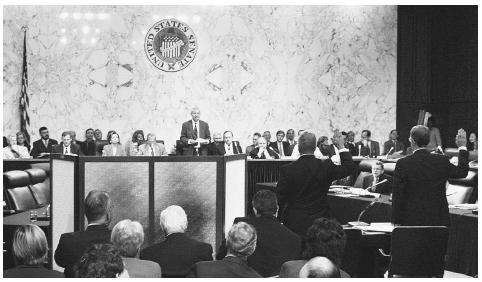Counter-Intelligence
Counter-intelligence is the use of intelligence resources to identify, circumvent, and neutralize the intelligence activities of a foreign power. That foreign power may be an enemy nation or a putative ally. In the United States, counter-intelligence is overseen from the Counter-intelligence Center (CIC) of the Central Intelligence Agency

(CIA), although a number of intelligence and law enforcement agencies are concerned with counter-intelligence to some degree.
Not only has the United States faced spying by Soviet and Eastern Bloc, Chinese, and Cuban operatives, but also by semi-friendly nations such as France or Indonesia, and by outright allies such as South Korea and Israel. According to testimony given before the House Permanent Select Committee in 2000 by Paul Redmond, former CIA associate deputy director of operations for counter-intelligence, some 41 countries were at that time attempting to spy on the United States. Given the size of the threat posed by foreign intelligence—which seeks to gain information on the technology and activities of the U.S. government, its agencies, and the military—federal authorities have sought to keep in place an effective counter-intelligence network. This involves not only operators, or front-line personnel involved in direct contact with foreign intelligence agents, but also analysts, whose job it is to study wiretap transcripts, surveillance reports, and other materials on the activities of foreign agents.
While the CIA holds the principal role in counterintelligence among U.S. agencies, even the Federal Bureau of Investigation (FBI), whose primary responsibility is law enforcement, has a counter-intelligence role. Sometimes this can be inadvertent; FBI agents, rather than their counterparts in the CIA, apprehended Soviet operative John Walker in 1985. Actual FBI counter-intelligence is concerned with investigating terrorist threats and other attempts to disrupt infrastructure or operations in the United States. (Ironically, an FBI counter-intelligence agent, Robert Hanssen, was exposed in 2001 as a spy of long standing for the Soviets and later Russia.)
Counter-intelligence may involve the employment of double agents, the planting of false information, or other efforts to undermine the intelligence-gathering activities of foreign nations. The agency conducting counter-intelligence may, when it has detected and identified foreign intelligence operatives, elect to keep those persons in place and not expose or arrest them—at least not for a time—in order to cause further detriment to the opposing intelligence agency by passing disinformation to the operative. This is a particularly likely option if the foreign agency represents a hostile power, rather than a friendly nation.
█ FURTHER READING:
Davis, James Kirkpatrick. Spying on America: The FBI's Domestic Counter-intelligence Program. New York: Praeger, 1992.
Godson, Roy. Dirty Tricks or Trump Cards: U.S. Covert Action and Counter-intelligence. Washington, D.C.: Brassey's, 1995.
Olson, James M. "The Ten Commandments of Counterintelligence." Studies in Intelligence no. 11 (fall-winter 2001).
Parrish, Michael. The Lesser Terror: Soviet State Security, 1939–1953. Westport, CT: Praeger, 1996.
Richelson, Jeffrey T. The U.S. Intelligence Community, third edition. Boulder, CO: Westview Press, 1995.
Comment about this article, ask questions, or add new information about this topic: